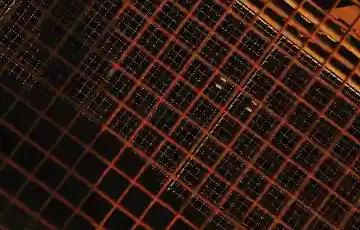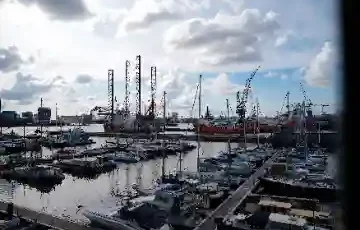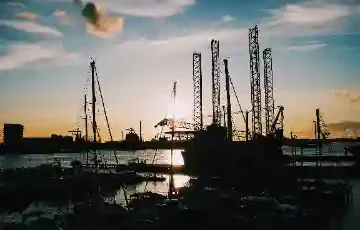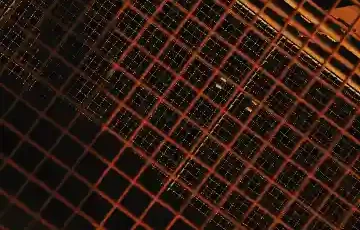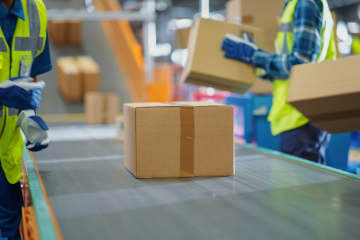
A product recall legally obligates manufacturers or importers to remove unsafe products from the market and actively retrieve them from consumers, holding them liable for damages while requiring immediate notification to the Netherlands Food and Consumer Product Safety Authority (NVWA). This obligation applies under the Dutch Commodities Act to all parties placing products on the Dutch market.
Who Bears Responsibility in Product Recalls Under Dutch Law?
Your statutory role in the supply chain precisely determines which obligations you carry during a recall action. Manufacturers, authorized representatives and importers within the European Union bear full responsibility for product safety. Therefore, they remain primarily liable when damage occurs through defective products. Distributors and fulfillment centers processing products from EU countries stay co-responsible for safety but do not act as EU-responsible parties.
This responsibility distribution follows from European Directive 2001/95/EC on General Product Safety and General Food Law Regulation 178/2002. The Dutch Commodities Act further elaborates these rules. Producers must implement active measures including risk assessment and corrective actions. Distributors collect relevant information and forward it to suppliers. Retailers report consumer complaints immediately to their suppliers.
Business operators importing products from non-EU countries automatically qualify as EU-responsible parties. Consequently, complete liability risk arises for product safety. A lawyer specializing in product regulation regularly advises on this supply chain positioning, because misunderstandings lead to unexpected financial claims.
What Distinguishes Silent and Public Recalls in the Netherlands?
Products not yet reaching consumers require a silent recall whereby the product is withdrawn from commerce without public communication. However, notification to the NVWA remains mandatory. During public recalls, products have already reached end users, making direct warning through media and other channels necessary.
The legal implications differ substantially between both scenarios. A silent action limits brand damage but requires direct communication with sales channels and intermediaries. You instruct them to stop selling the product and remove it from stores and websites. Moreover, you must keep technical documentation available for supervisors for six years and provide product data up to ten years after delivery.
Business operators carefully update their complaint registers. Personal data of customers may be stored maximum five years and exclusively for complaint investigation. In approximately 75% of cases, a silent recall proves sufficient when intervening timely, thereby limiting reputational damage.
How Do You Report an Unsafe Product to Authorities Under Dutch Law?
You report unsafe products directly through the European Commission’s Business Gateway to Dutch supervisors. Your notification contains specific information about possible risks, received complaints and measures taken such as safety warnings or voluntary recalls. Additionally, you mention product details including type, batch number, name and production date which must appear on each product.
Subsequently, you trace origin by verifying where the product and components originate. Importers identify the manufacturer, while distributors identify suppliers. This traceability determines whether Amsterdam District Court can later establish liability when victims file damage claims.
The NVWA verifies whether companies take sufficient measures to prevent consumer hazards. For serious deviations, the company informs consumers through a safety warning. Less serious deviations lead to removal from shelves under NVWA supervision. Business operators neglecting reporting obligations risk administrative fines and criminal sanctions alongside civil liability.
Product regulation lawyers in the Netherlands advise business operators to implement compliance procedures. Consequently, you prevent violations of deadlines and limit further damage during NVWA inspections.
What Requirements Apply to Safety Warnings in Dutch Law?
Above your warning, you clearly display ‘Important Safety Warning’. Subsequently, you describe how and where consumers can return the product. Information must be provided in Dutch for products sold in the Netherlands. Moreover, you add a clear product description including image, sales location, sales date and seller.
You publish your contact details enabling consumers to file complaints. Consider a telephone number, email address or chat option on your website. This transparency prevents later legal proceedings because you demonstrate consumers were reachable for questions. In approximately 85% of recall actions, clear communication proves essential for limiting reputational damage.
Additionally, you inform other involved parties including your insurer, legal advisor, business clients, end sellers and suppliers. This communication protects contractual relationships and ensures business partners can respond adequately. Besides public channels, you use customer databases from webshops where your products were sold.
Business operators insufficiently communicating about recalls face higher damage claims later. Courts in Amsterdam assess whether you as business operator correctly executed your duty of care by informing consumers timely and completely.
What Must You Offer Consumers During a Recall According to Dutch Legislation?
You offer customers minimum two of these three options: repair, replacement or refund of the purchase amount. When repair or replacement proves impossible within reasonable time, the customer always has right to refund. Returning must not cause inconvenience and costs for consumers. For non-portable products, you organize home collection.
These obligations flow from consumer protection as established in Dutch legislation. Contractual agreements between supply chain players determine who ultimately bears costs. In many cases, sellers can contractually recover costs from producers, provided the agreement explicitly regulates this.
Subsequently, you store returned products safely according to municipal environmental regulations. Follow-up steps depend on product type and risk. You conduct further investigation, destroy products or repair them depending on supervisor instructions. Throughout this process, you keep the NVWA informed of your steps.
Do you want certainty about your legal position during a threatening recall? Specialized lawyers in Amsterdam analyze your situation and advise on the best strategy to limit financial damage and prevent liability.
How Do You Determine Whether a Product Is Actually Unsafe Under Dutch Law?
Products qualify as defective when they fail to provide the safety expected under normal circumstances. Foods are considered unsafe when harmful or unsuitable for consumption. These definitions from the Commodities Act and European regulations provide guidance, although each situation requires customization.
In practice, you first examine whether the risk causes immediate health damage or material damage. For example: in February 2025, Amazing Oriental recalled Meirun chicken dumplings because glass pieces were present. Such acute safety risks require immediate action. Conversely, products with incorrect labels can also be recalled when allergen information is missing, even without direct physical danger.
Business operators doubting the necessity of a recall consult a product regulation lawyer. These professionals assess whether legislation actually requires recall or whether other measures suffice. Moreover, they analyze whether contractual agreements with suppliers enable cost allocation.
Case law demonstrates that inadequately responding to safety signals qualifies as wrongful act. Consequently, civil liability arises alongside possible criminal sanctions. In extreme cases, ignoring recall obligations can lead to bankruptcy through escalating damage claims and fines.
What Costs Does a Recall Entail in the Netherlands?
Recall actions cost substantial amounts through advertisements, safety warnings and possible hiring of marketing or communication agencies. Additionally, you lose income and incur extra costs for destruction, repair or delivery of replacement products. These expenses disrupt normal production processes through additional safety checks and adjustments.
The total financial impact varies greatly but often runs into hundreds of thousands for medium-sized business operators. In large international recalls such as Mars in 2016, where millions of chocolate bars were recalled in 55 countries, costs amount to tens of millions of euros. Reputational damage also affects brand value, causing long-term revenue loss.
Consumers suffering physical injury, material or mental damage file damage claims. The European Union wants to make it easier for consumers to file claims by abolishing the minimum amount of €500 and extending the filing deadline to fifteen years after damage. You prevent lawsuits by paying damage claims, although victims can jointly file a mass claim when you fail to pay.
Besides direct costs, recalls affect certifications such as ISO qualifications. Moreover, insurers can increase premiums or refuse coverage after repeated recalls. Business operators in Amsterdam therefore purchase specific product recall insurance, whereby policy conditions determine whether damage is covered depending on official orders or their expectation.
What Happens with Liability and Insurance Coverage Under Dutch Law?
Producers are liable for damage caused by defective products according to product liability regulations. This liability applies to damage to persons or goods used in private sphere, such as personal injury. Product liability excludes damage to the defective product itself, but includes consequences the product causes through its defect.
Insurance coverage for recalls often proves complex. A lawsuit at Rotterdam District Court illustrated discussions about coverage when food products were recalled twice from customers in Germany. The interpretation of the insurance policy became crucial for determining whether damage was compensated. Insurers usually require that an official recall order exists or is expected before coverage starts.
Failing to report a recall timely affects insurance coverage. Moreover, inadequate information about limited coverage can have legal consequences when this leads to unexpected costs for involved parties. Business operators insufficiently informed about their insurance often pay unexpectedly high amounts during recalls.
Contractual agreements between supply chain parties regulate distribution of responsibilities and liability. Good contracts specify who bears which costs during recalls and how communication proceeds. Commercial law lawyers in the Netherlands draft these agreements to prevent disputes later.
How Do You Prevent Product Liability and Recalls According to Dutch Legislation?
You implement proper internal recall procedures by regularly practicing recall scenarios. Consequently, your team responds quickly and adequately when an actual safety problem occurs. Moreover, you ensure product traceability and supply chain control, whereby problems are detected early.
Contractual agreements between supply chain parties clarify responsibility in advance. These agreements specify cost distribution, communication lines and liability during recalls. Additionally, you purchase insurance against recall damage, whereby you carefully read policy conditions to guarantee coverage.
Careful communication during recalls protects your reputation. Business operators transparently explaining how danger arose and how the product was improved often restore brand value. In approximately 60% of voluntary recalls, customer trust remains when companies take responsibility and communicate proactively.
Contact a specialized law firm in Amsterdam for personal legal advice about your specific situation. Product regulation lawyers help you implement compliance systems and minimize legal risks before product problems escalate.
What Are the Consequences of Non-Compliance with Recall Obligations in Dutch Law?
Failing to undertake appropriate actions when you establish that a product is unsafe leads to civil liability based on wrongful act. Courts assess whether you as business operator exercised sufficient diligence in identifying safety risks and informing consumers. Negligence results in compensation obligation for all victims.
Additionally, authorities can impose and enforce recalls with administrative fines and criminal sanctions. The NVWA imposes fines starting from several thousands of euros to amounts placing businesses in financial difficulties. Criminal prosecution occurs for gross negligence or intentional actions endangering consumers.
Business operators lose certifications such as ISO qualifications after recalls demonstrating insufficient diligence. These losses limit market accessibility because business clients often require certified suppliers. Moreover, recalls affect contractual relationships with business partners, who cancel orders or reduce volumes.
In extreme cases, ignoring recall obligations leads to bankruptcy. The combination of fines, damage claims, revenue loss and reputational damage proves fatal for many businesses. Directors become personally liable when acting culpably by ignoring recall obligations, whereby personal assets are claimed.
Can a Product Be Resold After Recall Under Dutch Law?
After the defect is remedied and the product proves safe again, you bring the product back to market. You do not need supervisor permission for this. However, you give the renewed product a new trace code or name clarifying it concerns an improved product.
This approach prevents confusion among consumers and retailers who knew the original product. You carefully preserve documentation about improvements because supervisors and customers can request evidence. Updating technical dossiers to the new version guarantees all specifications are correct.
Business operators communicate transparently about improvements to retailers and distributors. This openness restores trust and prevents the improved product from being automatically rejected through association with the earlier problem. Marketing campaigns sometimes emphasize improvements to proactively regain trust.
Legal advice when reintroducing products helps you assess whether residual risks exist. Product regulation lawyers in the Netherlands evaluate whether adjustments suffice and whether communication proceeds legally watertight to minimize future liability.



